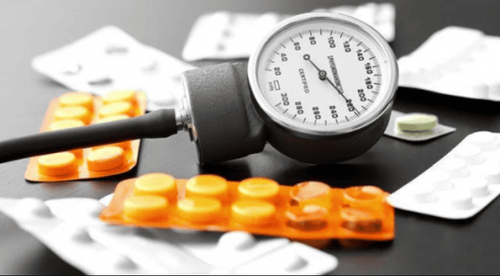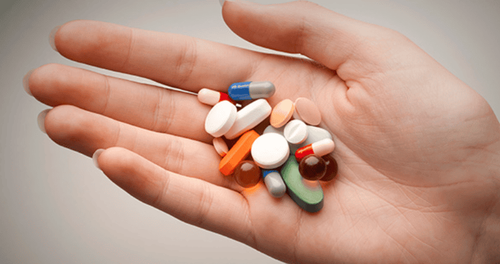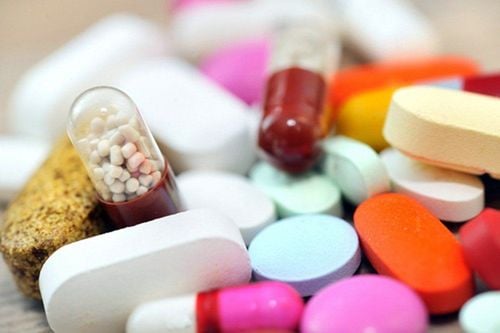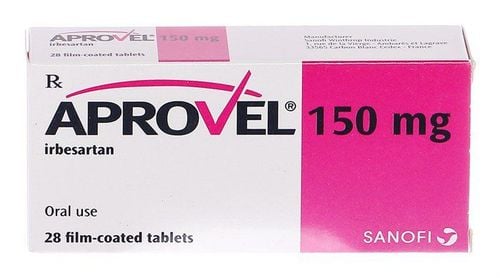This is an automatically translated article.
The article is professionally consulted by Master, Doctor Nguyen Thi Ngoc - General Internal Medicine - Endocrinology - Department of Examination & Internal Medicine - Vinmec Central Park International General Hospital. Doctor has more than 10 years of studying, researching and working in the field of endocrinology.Hyperkalemia is the medical term that describes a higher than normal level of potassium in your blood. Potassium is a chemical that is very important for the function of nerve and muscle cells, including the heart muscle. Your blood potassium level is usually between 3.6 and 5.2 millimoles per liter (mmol/L). A blood potassium level higher than 6.0 mmol/L can be dangerous and usually requires immediate treatment.
1. Symptoms of hyperkalemia
The symptoms that hyperkalemia causes depend on the level of potassium in your blood. You probably won't see any symptoms, but if the potassium level is high enough, it can cause a number of symptoms, including:
Fatigue, weakness Numbness Numbness Nausea and vomiting Shortness of breath Chest pain Irregular heartbeat In extreme cases, high potassium can cause paralysis or heart failure. If left untreated, high potassium levels can cause your heart to stop beating.
If you have extremely high potassium levels, you will need to be hospitalized until they return to normal.

Bệnh nhân tăng kali máu sẽ xuất hiện tình trạng đau ngực, nhịp tim không đều
2. Causes of hyperkalemia
Usually high blood potassium levels are not true hyperkalemia. Instead, it can be caused by blood cells breaking down during or shortly after the blood is drawn. The cells rupture, releasing potassium into the blood sample. This skews the amount of potassium in the blood sample, even though your potassium level is indeed normal. When this is suspected, a new blood sample will be taken for re-testing.
Causes of hyperkalemia are related to a number of diseases and the use of certain medications, including:
Kidney failure : is the most common cause of hyperkalemia. When your kidneys don't work or aren't working properly, they can't remove more potassium from your body. This can lead to a buildup of potassium. Chronic kidney disease Several other health conditions can cause potassium levels to rise, such as:
Dehydration Type 1 diabetes Addison's disease (primary adrenal insufficiency) Bleeding in One Certain medications can cause hyperkalemia, including:
Angiotensin-converting enzyme (ACE) inhibitors Angiotensin II receptor blockers Beta-blockers Some drugs used in chemotherapy In addition, abuse Taking a potassium supplement can increase the level of potassium in your body higher than it should.
3. Diagnosis of hyperkalemia
Blood tests or urine tests can help your doctor diagnose hyperkalemia. Your doctor will regularly do blood tests during your annual checkup or if you have recently started taking a new medication. Any problems with your potassium levels will show up on these tests.
If you are at high risk for potassium, you need to get tested regularly. Because you can't be sure of your own condition until symptoms of hyperkalemia appear and progress.
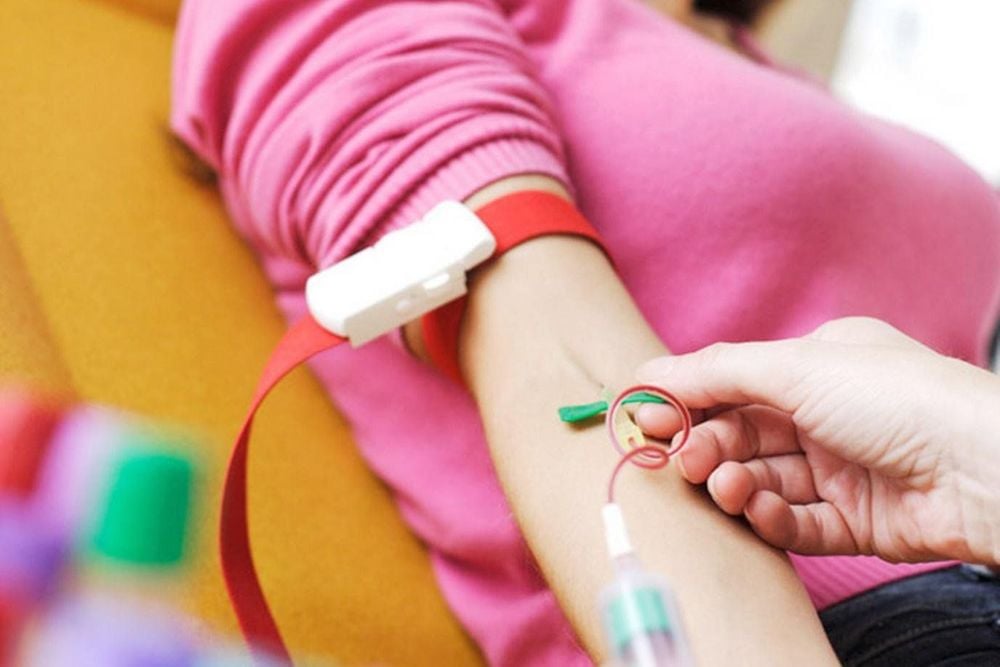
Thông qua xét nghiệm máu có thể phát hiện kali máu tăng
4. Treatment of hyperkalemia
The goal of treating high potassium levels is to help your body get rid of the excess potassium quickly. Treatment of hyperkalemia includes treating whatever is causing the hyperkalemia, such as such as kidney disease, adrenal disease...If hyperkalemia is caused by kidney failure, hemodialysis is the best treatment option. Hemodialysis uses a machine to remove waste products from your blood, including excess potassium, when the kidneys cannot effectively filter the blood. Certain medications are used to treat hyperkalemia. as:Calcium gluconate: Calcium gluconate can help reduce the effects of potassium on the heart until blood potassium levels are stabilized. Diuretics: Your doctor may also prescribe diuretics, which are drugs that make you urinate more often. Some diuretics increase the amount of potassium excreted by the kidneys while other diuretics do not increase potassium excretion. Depending on your potassium level, your doctor may recommend one or more of the following diuretics: Loop diuretics Potassium-sparing diuretics Thiazide diuretics If your blood potassium levels are slightly elevated, you may have high blood pressure. There are a few home remedies to reduce potassium under the guidance of a specialist. One of the simplest ways to lower potassium levels naturally is to reduce potassium intake with your daily diet. This means limiting foods and supplements that are high in potassium. Some foods high in potassium include:
Bananas Nuts Beans Milk Potatoes Apricots Cod Beef Some salt substitutes are also available. contains a lot of potassium. When you use salt substitute products, you should avoid products that contain the ingredient potassium chloride. Foods with a lot of additives, like baked goods and carbonated drinks, are also often high in potassium. Dehydration can make high potassium worse. Try to drink more water. Also, if you take herbs for any reason, there are a few herbs you should not take if you have high blood potassium levels. Alfalfa, nettle, and dandelion may increase potassium levels, so you should avoid these products. Symptoms of hyperkalemia may not be present in the early stages, so you You should have regular blood tests if you are at risk for this condition. If your blood tests show you have high potassium levels, your doctor will choose the right treatment for your health. Vinmec International Department is one of the hospitals that not only ensures professional quality with a team of leading medical doctors, modern equipment and technology, but also stands out for its examination, consultation and treatment services. comprehensive, professional; civilized, polite, safe and sterile medical examination and treatment space. Customers when choosing to perform tests here can be completely assured of the accuracy of test results. In addition, customers will be examined with a specialist to determine the risk of disease and have a scientific treatment direction.
Please dial HOTLINE for more information or register for an appointment HERE. Download MyVinmec app to make appointments faster and to manage your bookings easily.
The article references the source: mayoclinic.org, healthline.comMORE:
How much potassium is normal? Hypokalemia: Causes, Symptoms, Diagnosis and Treatment Common Problems in Electrolyte Disorders




